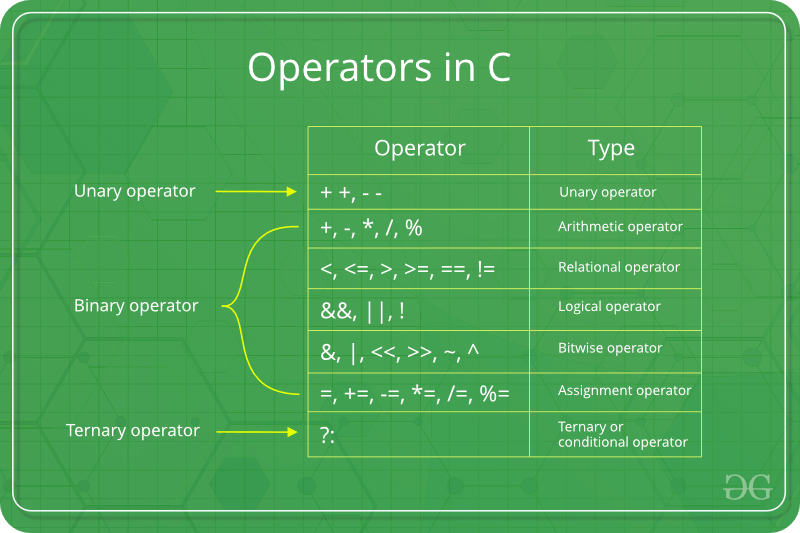Bitwise Operators in C/C++
Bitwise Operators in C/C++
In C, the following 6 operators are bitwise operators (also known as bit operators as they work at the bit-level). They are used to perform bitwise operations in C.

The & (bitwise AND) in C or C++ takes two numbers as operands and does AND on every bit of two numbers. The result of AND is 1 only if both bits are 1.
The | (bitwise OR) in C or C++ takes two numbers as operands and does OR on every bit of two numbers. The result of OR is 1 if any of the two bits is 1.
The ^ (bitwise XOR) in C or C++ takes two numbers as operands and does XOR on every bit of two numbers. The result of XOR is 1 if the two bits are different.
The << (left shift) in C or C++ takes two numbers, the left shifts the bits of the first operand, and the second operand decides the number of places to shift.
The >> (right shift) in C or C++ takes two numbers, right shifts the bits of the first operand, and the second operand decides the number of places to shift.
The ~ (bitwise NOT) in C or C++ takes one number and inverts all bits of it.
Let’s look at the truth table of the bitwise operators.
X | Y | X & Y | X | Y | X ^ Y |
|---|---|---|---|---|
0 | 0 | 0 | 0 | 0 |
0 | 1 | 0 | 1 | 1 |
1 | 0 | 0 | 1 | 1 |
1 | 1 | 1 | 1 | 0 |

Comments
Post a Comment